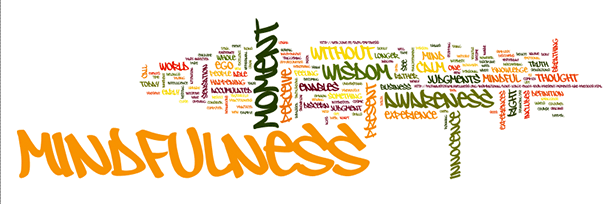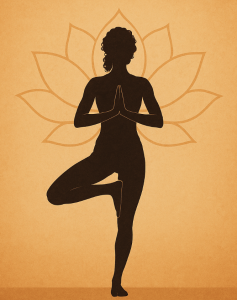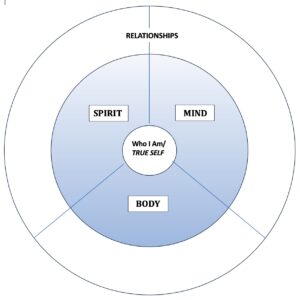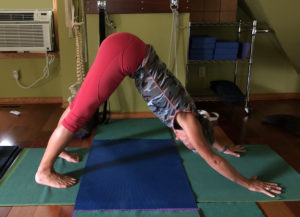Wayne Dyer refers to mindfulness as paying attention to “what’s happening right here and right now, independent of my opinion about it.” In today’s business jargon, mindful people are those who have excellent social, cultural and emotional intelligence and skills.
From its early origins, mindfulness was practiced by Buddhists as one of eight disciplines on their path to enlightenment. Although early Buddhism emphasizes mindfulness of breathing, it includes nine other forms.
- mindfulness of the Buddha
- mindfulness of the Dharma
- mindfulness of the Sangha
- mindfulness of giving
- mindfulness of the heavens
- mindfulness of stopping and resting
- mindfulness of discipline
- mindfulness of breathing
- mindfulness of the body
- mindfulness of death
In its simplest definition, mindfulness is the act of being aware in the present moment. Given this definition, most might consider themselves mindful. For example, I can hear the snowplow outside my window as well as my computer processor running in the background while I write. However, mindfulness runs much deeper than what we perceive around us. It includes a “calm awareness” of one’s bodily sensations, feelings, thoughts and conditioned behaviours. It is this calm awareness in the present moment that enables us to discern the truth (what is really happening) and thus take the right course of action.
Being able to discern the truth without it being coloured by our interpretations or judgments requires us to set aside our ego and view reality without judging our present moment awareness. When we perceive something through our ego, we compare it with our mind which uses our past experience and knowledge. Our mind then labels the person, event or thing as pleasant or painful — judgments. When we perceive something through our innocence, that calm awareness, we do not see it through our mind, we see it truthfully, as though for the first time everytime and without judgment.
Our innocence, in the present moment, sees with curiosity and interest and leans into the sensation, feeling, thought or behaviour. It draws the sensation close and discovers what it is through the experience of it rather than the idea of it. History is bypassed because we are not viewing through thought but newly discovering each moment without judgment (thought plus feeling).
It is probably becoming clear as to why the business world has become interested in mindfulness. It’s all about wisdom. Perceiving life through childlike innocence (calm awareness) rather than past-infected ego enables us to be wise in the moment. We are able to draw on wisdom inherent in the moment, which is not a part of our accumulated knowledge.
Zen practitioners, such as Adyashanti, call this heart wisdom — wisdom that belongs to the whole. From our innocence in the mindful moment, we no longer relate to people, events or things from the personal sense of me but from the whole of existence. I call this opening our intuitive channels to receive from the annals of the cosmic library; the accumulated wisdom across the ages. Present moment awareness gives us the insights we need to understand and adapt to the previously unknown — a wisdom building process.
In a world where solutions for yesterday’s problems no longer apply to today’s experiences, mindfulness enables us to perceive and experience our New Normal world without judgments such as volatile, uncertain, complex and ambiguous. The result being that instead of triggering fear and withdrawal, we stay open to new opportunities and emerging experiences meant to help us heal, learn and grow.
Below is a case of mindfulness at practice in the business world. Although consciouscapitalism.org does not reference mindfulness as part of their credo, being conscious is being mindful in the present moment.
The Conscious Capitalist Credo:
We believe that business is good because it creates value, it is ethical because it is
based on voluntary exchange, it is noble because it can elevate our existence and
it is heroic because it lifts people out of poverty and creates prosperity.
Conscious Capitalism is a way of thinking about capitalism and business that
better reflects where we are in the human journey, the state of our world today,
and the innate potential of business to make a positive impact on the world. Con-
scious businesses are galvanized by higher purposes that serve, align, and
integrate the interests of all their major stakeholders. Their higher state of
consciousness makes visible to them the interdependencies that exist across all
stakeholders, allowing them to discover and harvest synergies from situations
that otherwise seem replete with trade-offs. They have conscious leaders who are
driven by service to the company’s purpose, all the people the business touches
and the planet we all share together. Conscious businesses have trusting,
authentic, innovative and caring cultures that make working there a source of
both personal growth and professional fulfillment. They endeavour to create
financial, intellectual, social, cultural, emotional, spiritual, physical and eco-
logical wealth for all their stakeholders.
Conscious businesses will help evolve our world so that billions of people can
flourish, leading lives infused with passion, purpose, love and creativity; a
world of freedom, harmony, prosperity and compassion.
How does your business reflect conscious capitalism or capitalism with heart wisdom? What action can you take to increase the sources of mindfulness in your personal life? In your workplace?
Whatever the present moment contains, accept it as if you had
chosen it. Always work with it, not against it. Eckhart Tolle
For more on mindfulness techniques and conscious business tools, click here.





